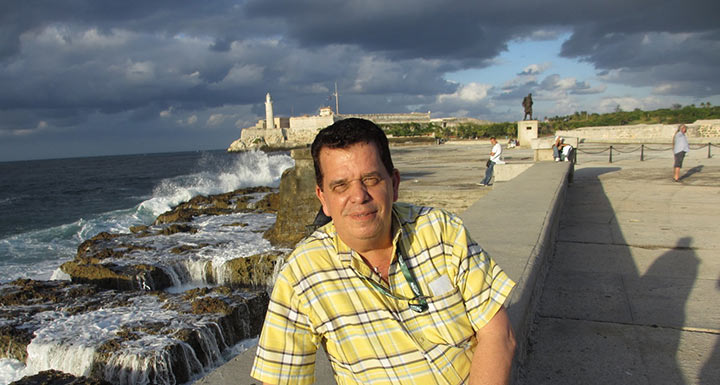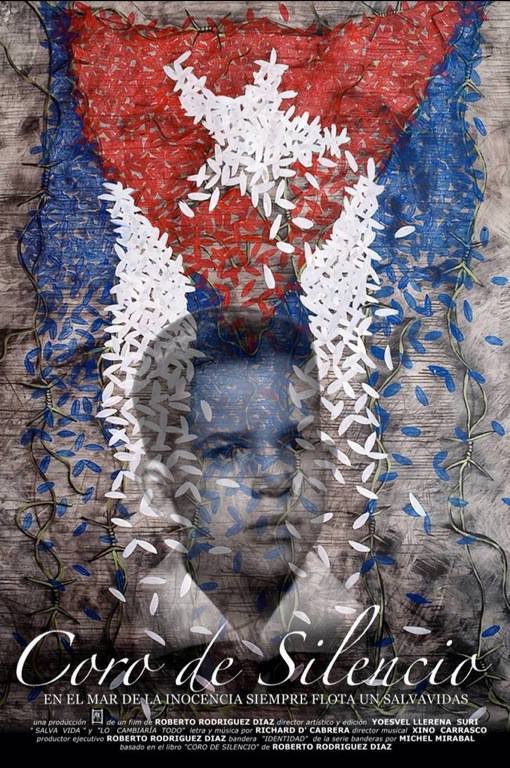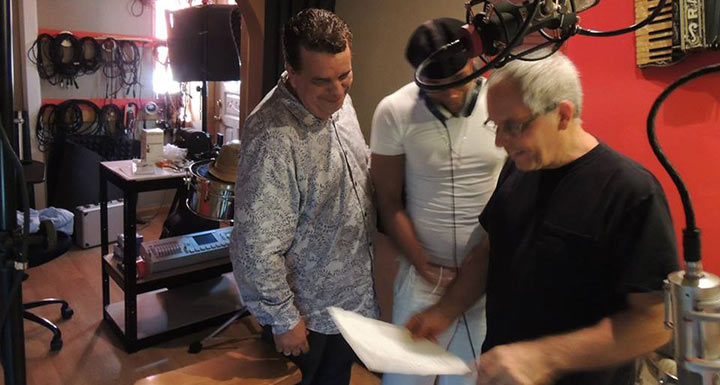
Journey to the seed
“Marcial had the strange sensation that the house clocks struck five, then four-thirty, then four, then three-thirty.” (Alejo Carpentier, ‘Journey to the Seed.’)
NEW YORK — Away from Cuba since 1961, Roberto Rodríguez Díaz — a Cuban-American until recently itinerant and disheveled, who has lived in Miami, New York and San Juan — re-encountered his homeland and himself half a century later, in a moving “journey to the seed.”
“It was like returning to my childhood. Everything was there, my house, my school, my neighborhood,” says this Havana-born man, 64, who unthinkingly uses possessive grammar to speak of things that seemed to have been left behind 50 years ago, when his parents sent him to the United States during Operation Pedro Pan.
“It’s not like here [the U.S.], where, instead of my house, I would most likely have found a shopping center, and instead of my school, a 50-story condominium.”
 Such was the impact of his trip that Rodríguez Díaz, a salesman by profession, became Rodríguez Díaz the writer and filmmaker, author of the book “Coro de silencio” [Chorus of Silence] and director of a documentary with the same title, because, he says, he felt the need to disseminate a message as important as heart-rending.
Such was the impact of his trip that Rodríguez Díaz, a salesman by profession, became Rodríguez Díaz the writer and filmmaker, author of the book “Coro de silencio” [Chorus of Silence] and director of a documentary with the same title, because, he says, he felt the need to disseminate a message as important as heart-rending.
The movie was shown to great public acceptance at the Festival of the New Latin American Cinema Havana 2013, the first time that a Cuban director living abroad participated in that prestigious event.
It was also shown at the Havana Film Festival New York 2014 and at the Cinema Festival in San Juan. At both venues, the audience reacted with great emotion.
Very soon, Miamians will also be able to see “Chorus of Silence.” Like the book, the documentary bravely reveals the story behind Operation Pedro Pan, through the experience of Rodríguez Díaz between the ages of 11, when he left Cuba, and 16, when he was reunited in the U.S. with his mother and sister.
“It’s called ‘Chorus of Silence’ because nobody has wanted to talk about it, even though — after the book and the movie were released — others have come out to tell their stories, many of which are worse than mine,” he says.
“I’m going to show it at the Tower Theater, on Little Havana’s Calle Ocho, in late November. My objective is to show it to the largest possible audience, to make people talk about it, so that something like this may never happen again.”
Orchestrated by the U.S. State Department, Operation Pedro Pan exploited the fear that the Revolution would eliminate the rights of parents over their children. It ended up being one of the largest exodus of unaccompanied children in history. Between 1961 and 1964, more than 14,000 minors were sent to the United States, Rodríguez Díaz among them.
But it was all a lie, made credible by the clandestine distribution in Cuba of a phony “law” that eliminated parental guardianship. It was a heartless conspiracy for propaganda purposes that scared parents and convinced them to send their children abroad, alone, on a one-way journey.
With the complicity of the Catholic Church in Miami, Washington placed the children in camps, foster homes, orphanages and reform schools. In many of those places, the children were mistreated or given electroshock and sedatives.
“I was sent to four places: a camp in Florida City, a foster home in Pompano Beach, another camp in Opa Locka, all in Florida, and finally to a reform school in Victoria, Texas,” says Rodríguez Díaz.
“In Opa Locka, the principal raped me. I wanted to denounce him but I was sent to a reformatory in Texas, where I found four other Cuban children. We were given drugs four times a day, to keep us under control.”
“People need to know that there was sexual, physical and mental abuse,” he adds. “The priests threatened to send us back to Cuba if we spoke up and told us that that would cause our parents great shame.”
 The parents also were the victims of the cruelty and deceit. Many of them realized too late the magnitude of the error that, with the best of intentions, they had committed.
The parents also were the victims of the cruelty and deceit. Many of them realized too late the magnitude of the error that, with the best of intentions, they had committed.
“My parents and my sister did not learn about what happened to me until 10 years ago, when they watched a televised interview in which I denounced those acts for the first time,” Rodríguez Díaz says.
“I had never told them, so as to keep them from suffering, and [the interview] brought everything into the open. A flood of tears followed.”
Every time he goes to Cuba — six times in three years — Rodríguez Díaz feels a growing identification with his people.
“What impresses me the most is the people. They welcome you with love, though they don’t have to. It’s an experience I cannot describe,” he says. “There is no hatred or rancor toward the Cubans in Miami and I wonder why the same can’t happen in Miami.”
With a voice invigorated by a renewed youth, he adds: “I want to return to Cuba and do whatever I can to help the changes. I want to live that new Cuba, I want to contribute.”
An authentic and moving journey to the seed.


